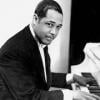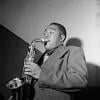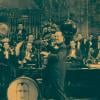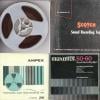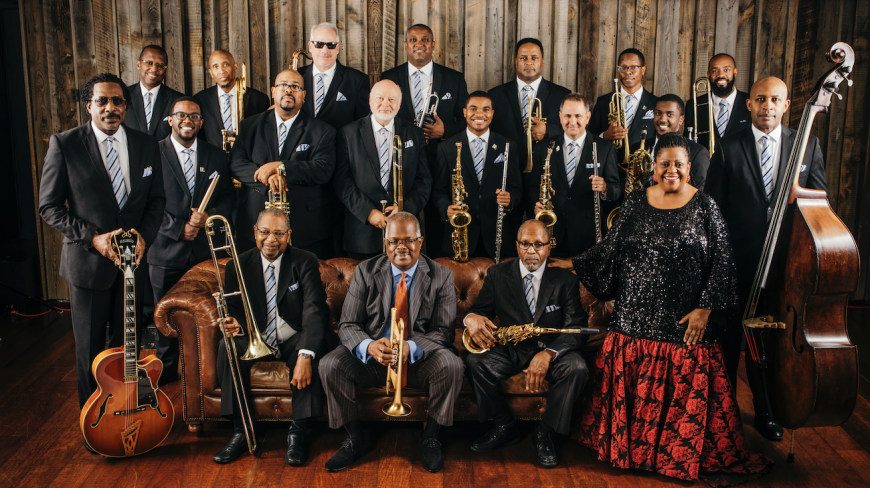
There are ghost big bands that continue to crisscross the country, trading on nostalgia long after their namesake leader has left the stage. And then there’s Count Basie Orchestra, an ensemble that continues to expand its epic, era-defining legacy.
Unlike Duke Ellington, a nonpareil composer whose orchestra was his instrument, Basie didn’t use his band as a vehicle for his writing. Presiding from the bench with a Cheshire Cat grin until his death in 1984 at the age of 79, the singularly telegraphic pianist hired a brilliant constellation of arrangers. The Basie book bristled with ingenious charts by the likes of Neal Hefti and Quincy Jones, Eddie Durham and Thad Jones, Ernie Wilkins, Sammy Nestico, and Frank Foster.
“He still edited their arrangements,” said trumpeter Scotty Barnhardt, the seventh musician to direct the orchestra. “Basie wouldn’t just take what people gave him. He’d say, ‘Let’s take that out. Let’s put this here.’ He’d put the Basie stamp on it.”
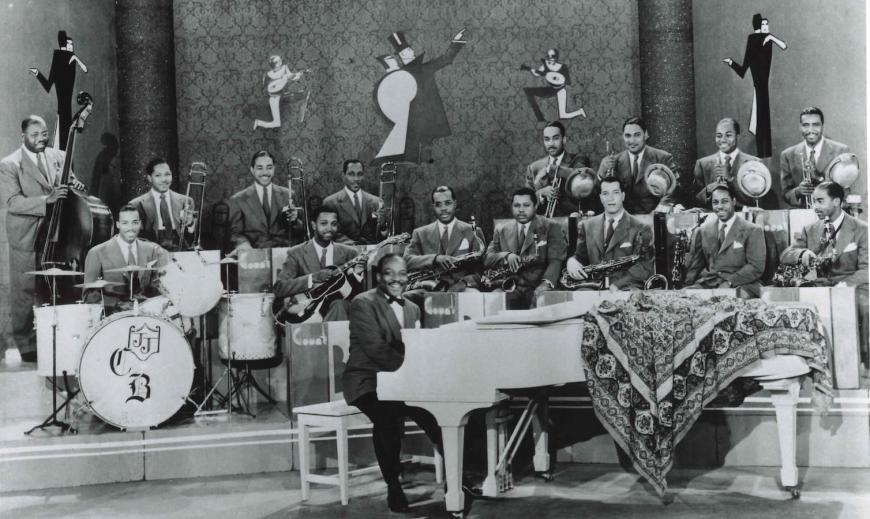
The Basie stamp, which ensured that the orchestra swung with insouciant, blues-informed authority, made a meteoric impact when the band roared out of the rollicking Kansas City scene in 1936 and added a bracing jolt of energy to the swing era. It’s hard to overstate the influence of what came to be known as the Old Testament orchestra (1935–1950), which featured tenor saxophonist Lester Young (through 1940) and the All-American Rhythm Section with Basie, guitarist Freddie Green, bassist Walter Page, and drummer Papa Jo Jones, who all exerted a profound influence on the cadre of young players formulating the virtuosic modernist idiom soon to be known as bebop.
The tectonic economic and social shifts that led to the rapid decline of big bands after World War II gradually caught up to Basie, forcing him disband the orchestra at the end of the decade. But he relaunched what came to be known as the New Testament band in 1952, attracting a rising generation of instrumental masters and top vocal and writing talent. The group’s been on the road ever since, and the Basie Orchestra’s Nov. 15 date at Yoshi’s highlights the essential role that the Bay Area has played in its continuing strength, on and off the bandstand. (The band will also hit up Los Angeles that week, playing a Nov. 17 engagement at The Soraya.)
Veteran lead trumpeter Frank Greene, who’s held down that chair in big bands led by McCoy Tyner, Clark Terry, Roy Hargrove, and Jimmy Heath, grew up in San Jose. He was good enough to start playing with Dave Eshelman’s San Jose City College Big Band while still in high school. Around the same time Greene joined the Basie fold, Oakland-native Glen Pearson took over the piano chair, a role that might surprise many of his Bay Area fans.
A longtime professor of music at the College of Alameda, Pearson is known around the region as a ferociously swinging post-bop player given to ringing, two-handed chords that can bring to mind McCoy Tyner (whose torrential, more-is-more approach contrasts dramatically with Basie’s characteristic minimalism). But Pearson spent much of the 1990s in New York City, where he frequently worked on Broadway and Off Broadway, including three productions of Ain’t Misbehavin’.
The musical tribute to the prolifically swinging pianist, vocalist, and songwriter Fats Waller, “who was heavily stride oriented,” said Pearson, allowed him to delve into the intricately syncopated piano style that informed players as distinct as Ellington, Basie, and Thelonious Monk. “I always found stride to be intriguing and that came to a head for me playing Ain’t Misbehavin’. Basie himself was a student of Fats Waller. His early years he was playing very challenging pianistic executions. People will say to me, ‘Oh, it must be a fairly easy gig. You just play a few notes here and there.’ No, Basie could play.”
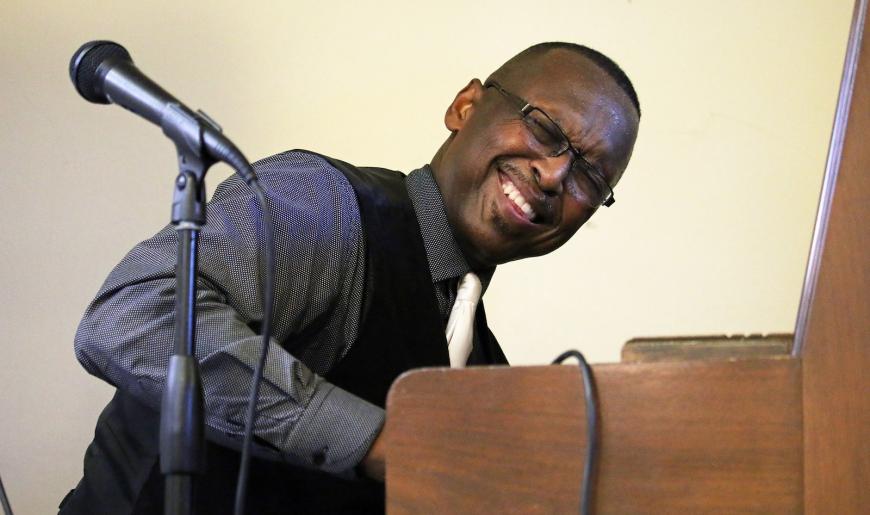
Basie was famous for his spare, perfectly placed pianistic accents, but Pearson went through a trial by fire when Scotty Barnhardt asked him to prepare “The Kid From Red Bank” for his first concert with the orchestra (at Symphony Hall in Chicago) with a week’s notice. A collaboration between Basie, who was born in Red Bank, New Jersey, and Neal Hefti, the serpentine tune kicked off the classic 1958 New Testament album The Atomic Mr. Basie (a double winner at the first Grammy Awards).
“I got to Chicago for the first performance and went to a ballroom at 2 a.m. and practiced it until the sun came up,” he recalled. “The next day we got to Symphony Hall for our rehearsal, which focused on our songs with Dee Dee Bridgewater. After that Scotty said, ‘Okay, let’s do some intros and endings.’ And then it was, see you at showtime. He didn’t even call it in rehearsal.”
Pearson did just fine at the show, and four years later he’s still in the Basie chair. His pride in the gig is evident, particularly when he talks about the recently released double album Live at Birdland. It was his first opportunity to record with the orchestra, and come hell or high water, he was determined to be on the bandstand, even though recent eye surgery prevented him from flying to New York. Planning his own southerly route to avoid the altitude of the Rockies, he spent nearly five days catching Greyhounds and driving, arriving in Manhattan on the morning of opening show. “That was my determination to be on that recording,” he said. “If I have to come by rickshaw or scooter or covered wagon, I wasn’t going to miss it.”
Pearson first came to Barnhardt’s attention in 2016 while accompanying Bay Area vocalist Jamie Davis at a holiday party at the house of Sam Beler, one of the orchestra’s main backers. “I remember thinking this guy can really play. Our pianist at the time was getting ready to leave, and Glen was interested. He’s been there ever since. He’s absolutely great.”
Davis spent three-and-a-half years touring the world with the Basie Orchestra in the early aughts, and like Pearson his first gig was particularly memorable. Originally scheduled to join the band in New Orleans at the 2000 International Association of Jazz Educators conference, he was put on ice because the airline lost the suitcase with his charts. “I was crushed,” he said. “But the next morning we leave for Austria and my first time singing with the Basie was in the Vienna Opera House. You want to talk about nice dates!”
An entertainer of the old school, Davis can belt the blues, croon American Songbook ballads with his warm, burnished bass, and deliver Stevie Wonder hits with soulful authority. Born and raised in Ohio, he relocated to San Francisco in the mid-1970s and made a strong impression performing with top players like trumpeter Eddie Henderson, tenor saxophonist Pharoah Sanders, and his childhood hero, vibraphonist Milt Jackson. But it wasn’t until his stint with Basie that international offers started pouring in, and he performs mostly overseas these days with European big bands. He joins the Basie Band as a special guest whenever he gets the call or when Carmen Bradford, the regular vocalist and a faculty member at San Francisco Conservatory of Music’s Roots, Jazz, and American Music program, can’t make it.
Davis’s relationship with the Basie organization extends off the bandstand, as the Walnut Creek-based Unity Music Foundation, which he founded with Sam Beler, has played a key role in producing the orchestra’s recent albums, including Live at Birdland. He may have left the band years ago, but his voice has continued to help define the orchestra’s sound, and the ongoing relationship has opened the door for several fine arrangers.
“Much to my surprise, you had to provide your own charts,” Davis said, who brought a book of arrangements by Allyn Ferguson, the late composer best known for his prolific work in Hollywood. More recently, he’s commissioned at least half a dozen charts from baritone saxophonist Aaron Lington, a music professor at San José State.
Lington won a Grammy Award as an arranger and player with the Pacific Mambo Orchestra, which scored a major upset by taking home the trophy for best tropical Latin album in 2014 for the band’s eponymous, Kickstarter-funded debut release. But when he heard that Davis and the Basie Band performed his chart for “Once in a While” and that the tune was slated for inclusion on Live at Birdland, “it was a dream come true,” he said. As a graduate student at University of North Texas, he won the Sammy Nestico Award for a chart he wrote for the Airmen of Note, a contest judged by Nestico himself.
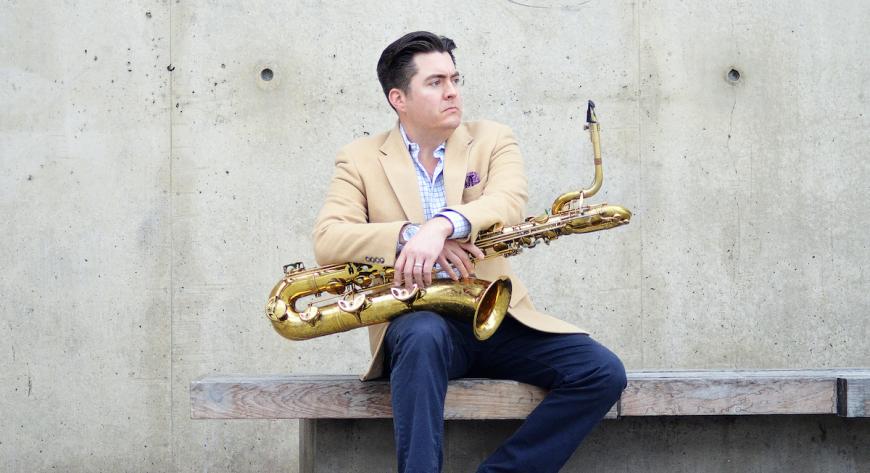
“So I was really thrilled, but I didn’t say anything about until I was holding the CD in my hand, because you never know,” Lington said. “It’s such a huge honor to have an arrangement of mine alongside charts by Frank Foster and Ernie Wilkins and Sammy Nestico. I’m a Basiephile. It’s my favorite big band music to play, and some of my favorite to listen to.”
Aside from the band’s prodigious book, which is largely archived at Rutgers University, the Basie Orchestra has continued to thrive because it’s more than an institution. Basie inspired intense loyalty amongst his musicians, turning the orchestra into an extended family. I first got a sense of that enduring bond back in the early 1990s interviewing Harry “Sweets” Edison, who joined the band in 1937 and stayed until it disbanded in 1950. While he recorded widely as a leader, he also went on to a prolific and lucrative career as a studio musician, including 10 years with Frank Sinatra. But his ties to Basie never frayed.
“Basie was like a father,” Edison said. “I would go back with him whenever he called. I don’t care what I was doing, if he needed me to come back, I would go.”
The love and respect that Basie engendered is still a potent force. Carmen Bradford, the last musician hired by Basie before his death, spent nine years in the band before establishing herself as a solo artist. She’s always ready to rejoin the ranks when she gets the call.


